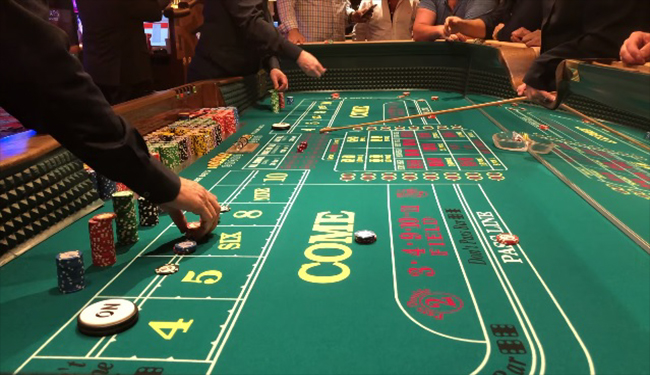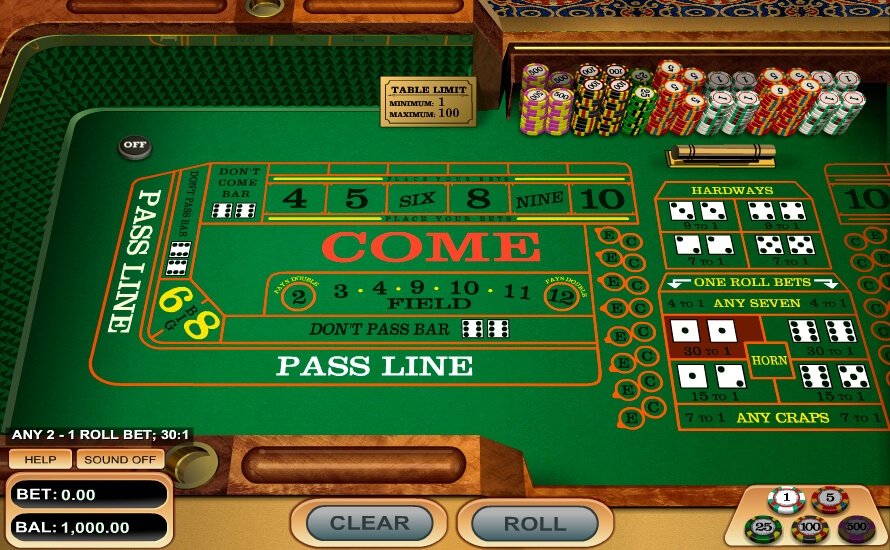With only a little searching on the internet, you’ll find pages that claim to have “solved” craps.
You’ll also find sites promising to teach you how to win “consistently” at craps.
- Here are pro tips from doctors on how to deal with the monthly menace. Feb 28, 2019 Getty Images. Period symptoms vary from woman to woman, but cramps is a classic harbinger of.
- First of all, you should always tip the dealers at the craps table. Before we get into everything else, tipping the dealers is just the right thing to do.
- Craps For Dummies and er.You! Craps can seem intimidating. It’s littered with strange words, odds, and numbers that seem out of context. Meanwhile, practiced players stand around the table cheering, groaning and yelling words that seem to make little sense.
Craps Tips: Hi Yall, So as you may know, I love to gamble and Craps is my game. I love Craps because it’s the most social game in the casino and because it’s one of the best odds. I can play for hours and break even or sometimes I can win hundreds. I rarely lose playing craps so I wanted to share some craps tips with you if you’re a.
They claim that you can make profits on a regular basis by shooting dice and betting on other shooters.
This isn’t one of those pages.
That’s because I’m not a liar.
Here’s the truth about how to win at real money craps almost every time you play.
Winning Craps Systems
I can tell you where to find the winning craps systems. They’re right next to the unicorns in the zoo and the mermaids in the aquarium.
How do craps systems work?

They use a combination of bets that are meant to hedge against losses. They also usually involve raising and lowering the size of your bets based on what’s happened on previous rolls and previous bets.
Often, they try to capitalize on hot and cold streaks.
Here’s the problem:
Some of those negative numbers are bigger than others, but they’re all negative.
And if you double or triple those bets because of something that happened on a previous bet, you still have a negative number.
And yes, you will see winning and losing streaks at the craps table.
The problem is that you have no way to predict when these winning and losing streaks will begin or end. They’re only available in hindsight.
The nature of gambling games – craps especially – is to be streaky.
But a streak can win or end at any time.
Here Are 10 Easy Steps to Beat Craps – Yeah, Right
I don’t have a problem with writers offering tips for how to beat craps. Heck, I offer tips for craps players in some of my posts, too. My problem is the overselling of these tips.
But heck, even that’s not too bad.
What’s really bad are people who take your money in exchange for some kind of unbeatable craps system. These craps systems are NOT unbeatable. In fact, in the long run, they can’t win.
You can’t defeat the math at the craps table by combining various bets at the table. There are NO craps bets with a positive expectation. The closest you can get is a bet called the odds bet which has no house edge at all.
But just because that bet is a break-even bet doesn’t mean it can help you get an edge at the other bets. In fact, you’re not able to place an odds bet unless you’ve placed a pass bet first, which has a house edge.
But there’s one possible exception to this…
Taking the Odds Bet on Someone Else’s Bet
I read a book by Frank Scoblete where he suggested becoming the “odds man.” I haven’t tried this in a casino, so I don’t know if it’s a viable strategy or not. I do know that it won’t get you an edge over the casino.
Here’s how it works:
You find a craps player who’s betting the pass line or the don’t pass line – but who isn’t taking or placing odds.
Craps Dealing Tips
You ask that player if you can make odds bets on his bets.
If the casino allows this, and if the other player allows this, you can place or take odds without having to make the negative expectation bet that precedes the odds bet.
But this still doesn’t give you an edge.

The odds bet is, in the long run, a break-even proposition.
Blackjack Dealing Tips

There’s a big difference between breaking even and making a profit. Sure, in the short run, you might see a quick profit, but over enough time, this strategy is just a break-even strategy.
A break-even strategy is far better than a losing strategy. I suppose if you take advantage of some comp drinks, it might even be considered marginally profitable.
Why Does the House Have a Mathematical Edge in Craps?
The mathematical edge in craps resembles the mathematical edge for every other casino game. It’s just a function of offering bets that pay off at less than the odds of winning.
The easiest example to understand is the even money bet.
Most people realize that if you place an even money bet and have a 50% probability of winning that bet, you’ll break even in the long run. By definition, a 50% probability of winning means you’ll win as often as you lose.
And since even money means you’re betting the same amount you’ll win, you’ll eventually see results close to a net loss or win of $0, regardless of the size of your bets.
But you don’t have a 50% probability of winning the even money bets in craps. The probability of winning an even money bet in craps is always slightly less than 50%.
In this case, the probability of winning the pass line bet is 49.3%, which is close to 50%, but it still gives the casino an edge. The casino will win this bet 50.7% of the time.
In the long run, you can’t win with those odds.
And that’s arguable the best bet at the table. (The probability of winning the don’t pass bet is higher by 5/100 of a percent, but that’s such a small number that it’s not especially interesting.
What if I Hedge My Bets?
Hedging your bets doesn’t work. The idea is that you bet on one outcome, but you also place a bet on another outcome that will compensate for when your initial bet loses.
This sounds good in theory, but it doesn’t work in the long run for one simple reason:
Your original bet AND your hedge both have a house edge.
In other words, you’re just adding one negative expectation bet with another hoping to get a positive expectation.
But that’s not how negative numbers work.
Add any set of negative numbers together, and you’ll get a negative sum.
Okay, But What if You Could Control the Outcome of the Die Rolls?
The biggest potential I see for beating craps is learning how to exert some control over the outcome of the die rolls. The idea is that by holding the dice in a specific position (“setting the dice”), and then by throwing the dice without a lot of force (“a controlled throw”), you can reduce the probability of losing by enough to shift the already low house edge in favor of the bettor.
Is this possible?
Frank Scoblete thinks so, but he suggests a lot of hare-brained strategies, so I don’t lend him much credence.
But I’ve also seen Michael Shackleford say that he’s seen some pretty impressive demonstrations, and I have a lot of respect for him.
Do I think it’s practical to become a controlled dice shooter?
Let’s talk about what that would involve in the next section.
What Would It Take to Become a Controlled Shooter?
I’ve seen being a controlled shooter called different things. Scoblete calls such shooters “rhythmic rollers.” I’ve also seen them called “dice setters.”
The verbs used to describe this approach varies, too. I’ve seen it called “controlled shooting” or “dice setting” more often than anything else.

The idea is to learn how to roll the dice well enough that you can reduce the odds of rolling a 7 by a significant enough margin that you flip the odds from favoring the house to where they favor the bettor. (This assumes that you’re betting the pass line, of course.)
The first thing you would need to do to learn how to set dice is to find an instructional video, a book, or a coach. Those aren’t hard to find, but I wouldn’t spend a lot of money on such a thing.
The next thing you’ll need is somewhere to practice. This includes having a realistic craps table with similar dimensions to what you’d find in an actual casino. It also includes having room for that craps table.
Then you need to practice what you’ve learned from the video, book, or coach on that table.
Finally, you’ll need to track your results. This is where the rubber hits the road. To be statistically sure of how well you’re affecting the odds, you’ll need at least 1000 trials.
And the more trials you record, the more accurate your accounting of your skill at dice throwing will be.
One more thing…

I suspect that dice control might be like other feats of athleticism or skill. Some people just might not have a knack for it. It’s possible that some people just might be able to learn how to do it, even if it is possible, and even if they do practice.
95% of poker players lose money in the long run. This means that only 5% get an edge.
My guess is that a similar percentage of dice shooters have the knack for controlling the dice. It might even be a smaller number than that.
Conclusion
Craps is a great game, and I love it. And you can win a fortune playing craps in almost no time at all.
But the idea that you win at craps consistently or “almost every time you play” is ludicrous.
If the casinos thought you had a way to beat craps, they’d back you off the game – just like they do with card counters.
When’s the last time you saw the casino tell a craps player he’s too skilled?
Yeah, me neither.